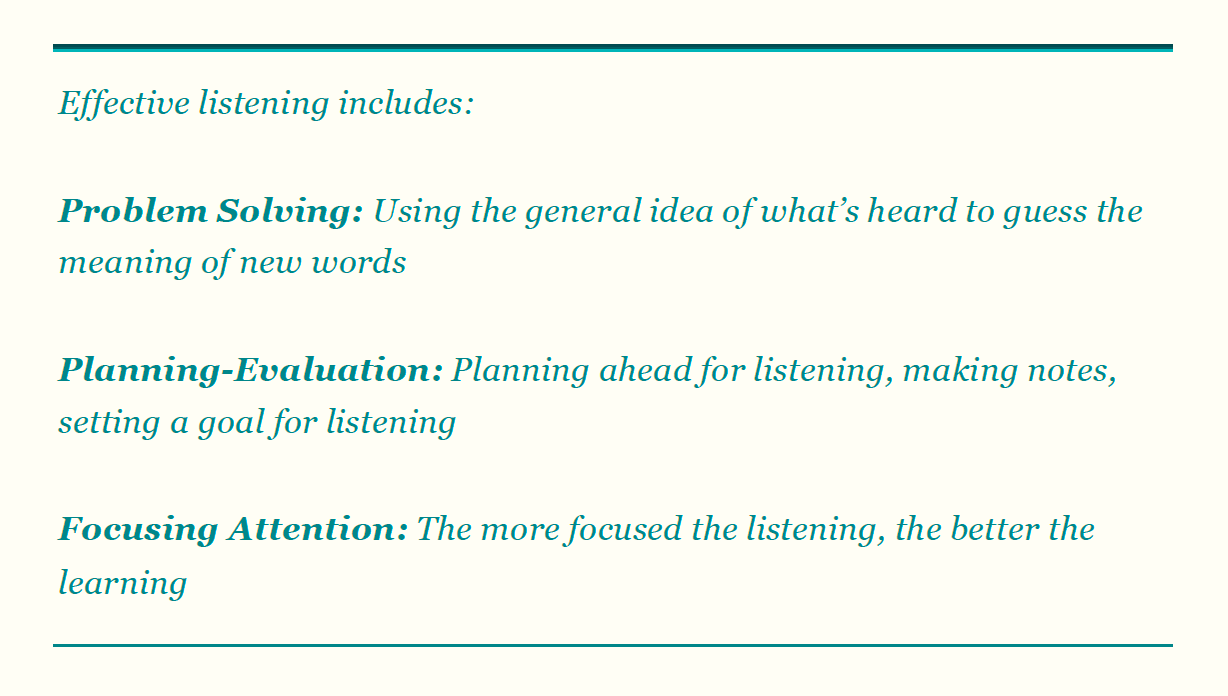Meeting the Common Core’s Active Listening Standard
You go to school to learn how to read, write and do arithmetic. But the one skill you come in with, listening, loses importance over time as you build on your reading and writing skills.
In fact teaching tools that address listening are virtually nonexistent in the K12 classroom. Listening as a skill is almost entirely absent from the curriculum. And yet, research shows only 10% of us listens effectively. Clearly there’s a disconnect.
If students graduated from high school and only 10% could read well, there would be an education revolution. There is agreement among business leaders, politicians and educators that communicating effectively, which includes listening and speaking, is a key 21st century skill. In fact, we spend the majority of our time listening, not reading, writing or doing math problems.
A Common Core anchor skill

The Speaking and Listening Standard requires students, among other skills, to interpret information from diverse media formats and delineate specific arguments and claims.
I know how to listen. As a public radio reporter, it was my job to listen. I listened to politicians make their case in press conferences. I listened to lawyers make arguments in court. I listened to families devastated by drug abuse.
Then I synthesized those stories and wrote about them so other people would listen. I instinctively knew that if I told a good story and used compelling, emotional voices from the interviews, people would listen. What I’ve learned is that my instinct is correct. If you tell a good story, people listen better. Research out of Hebrew University proves this.
The brain and listening
I also know that people can improve their listening abilities. Like anything else that involves brain synapses, the more you practice the better you become. Making your brain practice by using techniques and good principles of active listening will help.
How do you improve listening? Most of the research around listening is related to learning a second language, not to becoming a better listener in your native language. But there’s much to learn from these studies.
One research study examines how a listener uses cognitive listening strategies to make sense of what they are hearing and metacognitive listening strategies to monitor the process of listening. Am I still listening? How do I get back on track? How do I understand that word?
In the paper, Laura Januski, PhD says a cognitive strategy might just be for the listener to grasp the main point of the story. A metacognitive strategy would be to check perceptions during listening to assess understanding.
Here are some highlights from research, summarized from my white paper on the topic, “Understanding Auditory Learning.”
 Rich, well-presented content can help
Rich, well-presented content can help
Better stories make for better listeners and learners, and some of the best audio stories in American culture are found at National Public Radio and the many public radio stations serving communities across the nation. Also check out Newsela’s read-aloud tool, a good way to promote active listening across their vast content.
[Updated 2-3-24]
Monica Brady-Myerov founded Listenwise and was the CEO until 2021. She was a public radio reporter for 25 years.

































Thanks for advancing the cause of the forgotten language arts! I always see “reading and writing” but seldom listening and speaking. Indeed, this may be the only book out there specifically about Listening & Speaking standards: goo.gl/4iJh1 Teaching the Core Skills of Listening and Speaking